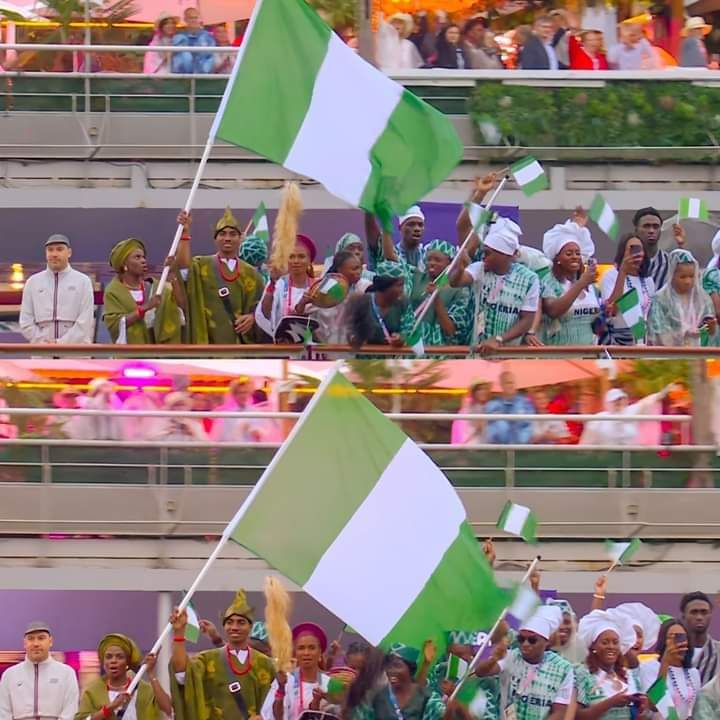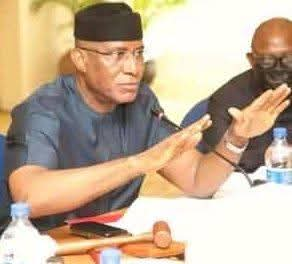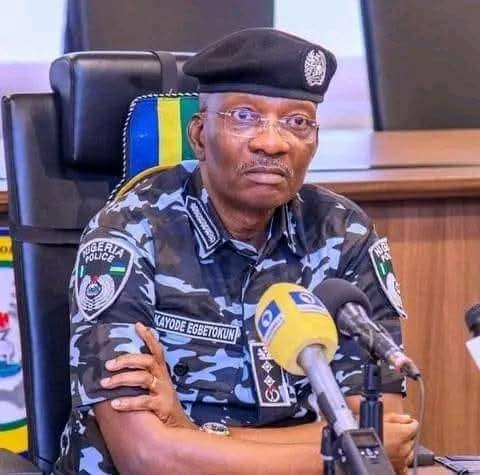By Sunny Awhefeada
As literature students at the University of Benin, we played with words as we honed our poetic and oratorical skills. One of the many superlative words we deployed in those hungry, but starry eyed days was “Olympian” which in our context meant “exceptional” or “superhuman”.
We deployed it to foreground traits that we found extraordinary, lofty and outstanding. So we had such turns of expression such as “Olympian height”, “Olympian achievement”, “Olympian attainment” to describe feats that awed our impressionable minds. As counter to such positive acclaims we took cues from the bitter and sarcastic attitude of Restoration poets and coined expressions like “monumental stupidity”, “unmitigated idiocy”, “disastrous folly”, and more. We were youths and it was a moment of flourish without restraints.
The short walk between our halls of residence and lecture halls could offer scenes, no matter how commonplace, that conjured such farfetched imagery. An innocuous incident in the classroom, departmental library, the kiosk where we bought snacks or the nearby buka that offered beans and dodo, could elicit impassioned expressions that came alive through verbal abuse or got posted on the noticeboard for all to read.
The weekly meeting of the Creative Writers’ Workshop was a permissive avenue for jibes and quills to fly. All of these took place many years ago. It will be three decades in two years from now when we left the illuminating and edifying ambience of the University of Benin.
The outing of the Nigerian contingent at the recently concluded 2024 Olympics which took place in Paris made me to rethink the discursive use to which we put “Olympian” three decades ago. Then it had an elevated meaning with implications for that which was not just but positive, but desirable and worthy of emulation.
The meaning elevated the subject beyond placing it on a pedestal. My present conjuration of “Olympian” however subverts what we intended it for in the days of yore.
My present recourse to it reverses its meaning to not only denigrate the subject, but to confine it to the base of ridicule where it rightly belongs. It is for this reason that the present intervention takes on the title ”an Olympian shame” to depict the magnitude of the shame and embarrassment of spending a whopping nine billion Naira at the just concluded Olympics games and returning without a single medal.
Nigeria is not just another country. Nigeria is a country of over two hundred million people that are highly talented, resourceful, inspiring and among the best in everything they do under the right atmosphere and leadership. Our population is a great advantage. So is the grit of the average Nigerian.
The chink in our armour which widens everyday remains the blight of bad leadership. This is the reason why Nigerians who competed for Nigeria could not win a single medal, whereas Nigerians who competed for other countries won medals in abundance!
It is unthinkable that a country like Nigeria would go to the Olympics in 2024 and return without medals not even one. The questions, what happened to us and how did we get here have been asked again and again. It is apt to ask again even if for the umpteenth time. My earliest recall of Nigeria’s participation in the Olympics was in August 1984 when it was hosted in Los Angeles. We followed the games on television and read the reports in newspapers the next day. I still recall Peter Konyegwachie who did well in boxing and won a silver medal.
I cannot forget the men’s relay team led by Innocent Egbunike that won a bronze medal. Other members of that team were Rotimi Peters, Moses Ugbisien and Sunday Uti. We so admired them that we read whatever we found about them in newspapers and their names and identities stuck.
A Street was later named after Konyegwachie around Ekenwan Road in Benin-City and I smiled in happy remembrance whenever I walked past the place each time I visited my aunty who lived nearby.
Egbunike went on to dominate the track events for a long time. Those of us in staff quarters where I grew up couldn’t follow the 1988 Seoul Olympics because by then the electricity generating set that powered the quarters at night had packed up and our teacher-uncles and parents could no longer afford newspapers since SAP (the notorious economic policy of the 1986) had sapped their income. The same happened in the 1992 edition in Barcelona.
It was the 1996 edition that thrilled my generation and made us beat our chests in celebration of the infinite possibilities embedded in the Nigerian. In those days, power supply had become epileptic, but the National Electricity Power Authority (NEPA) was patriotic enough to make electricity available whenever Nigeria was participating at such an event. So we followed the games on television.
The 1996 Olympics saw Nigeria winning her first gold ever in any edition of the games. Chioma Ajunwa, the fleet-footed police officer, got gold for Nigeria in the long jump event.
Another gold followed Ajunwa’s. That was the ultimate gold which Nigeria won in the football event. That inimitable team was captained by Kanu Nwankwo.
The team it trounced was the dreaded Brazilian team which paraded some of the best footballers in the world. In fact the Nigerian team came from some goals down to equalize and trounce the Brazilians. When the final whistle went and Kanu did that unforgettable dance in faraway Atlanta in the United States of America, Nigerians poured into the streets and drummed and danced and drank till dawn. It was an unending celebration. That victory mitigated the disastrous brutality the Sani Abacha regime afflicted Nigerians with. For many days, Nigerians celebrated the victory which provided relief, some sort of placebo, from the draconian regime.
Nigeria has had great moments in sports on the global arena and on the African continent.
The 1980 African Cups of Nations which we watched as children was one of such. It was hosted by Nigeria in Lagos. There were memorable victories in global tournaments in 1985, 1989, 1993, 1994 to mention just a few. In Africa, there was Algiers 1990, Tunis 1994 and others.
Nigerians always erupted in celebration after each victory. Those moments often ameliorate the buffetings occasioned by bad leadership and console us that we had something to celebrate.
The recent disastrous outing equated a tragedy which derived from an equally tragic failure of leadership. Imagine that Nigerian cyclists had to borrow bicycles to compete at the event. Who knows what else they borrowed from boots, to jerseys, to glucose and what not and even if our athletes squatted with benevolent competitors.
The sports minister, John Enoh, was on national television struggling to explain his failure. An old classmate called me to say we should commission two of our good old teachers, Mr. Ogako and Mr. Agboge, famous for dexterously applying the cane on the buttocks of recalcitrant pupils to lash Enoh twelve strokes of the cane apiece. Yes, Enoh deserves such flaying for presiding over what brought an Olympian shame to Nigeria!
Failure of leadership is constantly at the core of our predicaments. Take a look at the medals table and what one observes is that serious countries led by people who know the essence of leadership topped it.
Countries that are desirous of making progress are not led by people who see governance as an endless owambe party.
Nigeria ought to be among the first five countries on the medals table. We are not where we should be. We do not deserve this Olympian shame. Some medals from the Olympics would have soothed frayed nerves especially during the ENDBADGOVERNANCE protest.
Some Nigerians would have seen such medals as redeeming interventions of the moment. Unfortunately, the inept character of the present regime was writ large as an emblem that Enoh carried aloft.





